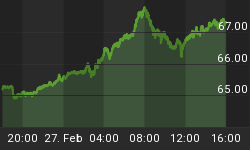One of the biggest money-makers in today’s job market requires no real skills, no degree, and no experience.
Baby Boomers are necessarily appalled, and even some of the older Millennials.
The ‘job’ is social media influencer, and it’s raking in tons of money for those lucky enough to jump on the bandwagon at the right time and with the right angle.
And if they fail, well, unless they were already celebrities when they started, they’re likely to be relegated to the bottom of the employment food chain.
Earlier this year, one Florida-based social media influencer, Jessy Taylor, posted a tearful video lamenting the prospect of working a 9-to-5 job after her 100,000-follower Instagram account was deleted.
Having previously worked at McDonald’s, Taylor said she wasn’t cut out for a 9-to-5 job because she had no job qualifications and brought nothing of note to the table--other than fast food.
But that was before an Italian online university sparked off what could potentially turn into a trend by offering the world’s first “Social media influencer” degree. ECampus, promoted by football star Cristiano Ronaldo, says three years of coursework and tuition of roughly $13,000 can earn you the title, and hopefully, success.
"The figure of the influencer is increasingly in demand by companies, commercial brands and advertising agencies, because they can deliver messages to their followers who recognize them as credible and reliable opinion leaders,'" reads a description of the degree.
A few dozen students are already enrolled, just days after the program was announced.
Still, Taylor’s meltdown over account deletion was understandable considering the size of the market and the money up for grabs.
Brands are set to spend up to $15 billion on influencer marketing by 2022, up from as much as $8 billion this year, and up from $500 million in 2015.
Three-quarters of companies are using influencers as a marketing tool and many plan to increase spending—43 percent—on it in the next 12 months. Of the marketers that are not currently deploying influencer marketing, 27 percent reported that they plan to do so over the next year. Related: Space Crime And Scandal Overshadow SpaceX Failure
However, as of recently, despite the projected growth of spending in this category, many companies are questioning whether paying so much money is actually worth it. Why? Because it’s difficult to really verify how many people even see the ads and how those ads affect sales.
According to a recent poll, 86% of women seek purchasing advice from social channels. In total, nearly 50 percent of customers depend on the recommendations of influencers, while the vast majority of teenagers tend to trust social media promotion more than popular celebrities.
Brands typically pay influencers based on their reach, as measured by their number of followers.
‘Micro-influencers’--those influencers who only have a meager following in the thousands--can make thousands of dollars per post, while social media stars with followings of more than 1 million can make more than $100,000 per single promotional post.
However, with this much money involved, it is an invitation to anyone in the ad-fraud business.
At least 15% of advertisers' spending on influencer marketing is lost to fraud, costing them $1.3 billion annually, according to research by cybersecurity company Cheq. Influencer fraud, including purchasing fake followers and creating fake personas, is expected to cost businesses $1.5 billion next year.
By Michael Scott for Safehaven.com
















